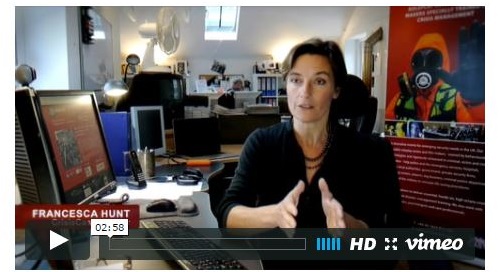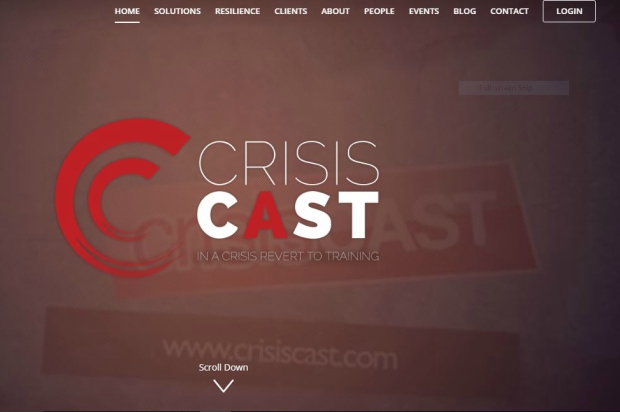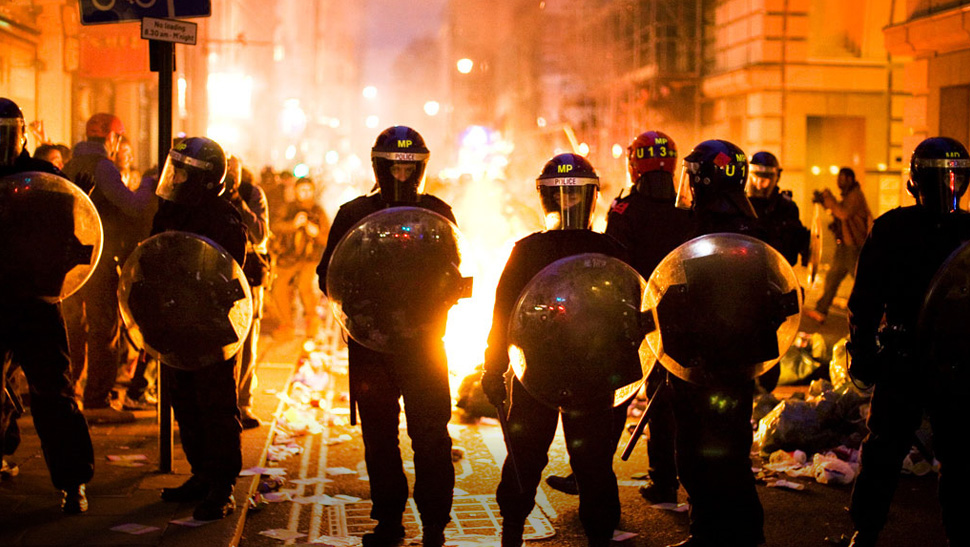
CASTING CRISIS: ORLANDO'S ACTORS, AGENTS AND CASUALTY ROLE PLAYERS
Shawn Helton
Truth is often stranger than fiction when looking at the bizarre phenomena surrounding many mass casualty incidents – and the Orlando Pulse nightclub shooting was no exception.
It was recently revealed that the world’s largest security firm G4S, who had employed the man named in the Orlando pulse nightclub shooting, Omar Mateen – is a client of the mass casualty staging company called CrisisCast.
‘STAGING REALITY’ – CrisisCast specializes in replicating mass casualty events. (Screen Capture from Crisis Cast)
Training for Disaster
The heavily-stylized company CrisisCast, appears to be a revamped version of the Visionbox Crisis Actors project (a crisis actor production emerging after Sandy Hook), with a professional team of actors, elaborate film crews, expert producers and theatrical effects makeup squads mimicking real-life injuries (additional prosthetics) – all focused to deliver a simulated crisis-like reality to the public, later to be managed accordingly through their public relations division via various forms of social media.
RELATED: (VIDEO) ‘Active Shooter’ and ‘Terror’ Drills: The Truth WILL Shock You
In CrisisCast‘s ‘about’ section we see a sophisticated amalgam of emergency protocol disaster training combined with “internationally credited film crews,” that bring their high-end stagecraft to life, through a collection of “role players, stunts, medical simulations and combat flashpoints,” cloaked in visual tricky, with film techniques out of the UK and Australia, so says the group’s website.
Below is a road traffic collusion demo created by lead CrisisCast producer/founder Brian Mitchell (has worked on Hollywood studios and holds National security clearance) featured on Vimeo. The scenario is filmed from multiple angles, with quick cut editing that disorients, as we see an individual (crisis actor) in the aftermath of a crash – struck by the emotional weight of the scene – screaming out to a gaggle of onlookers after witnessing the staged carnage. The strange episode leaves one with a feeling of phantom trauma that continues to lurk.
When recreating large scale mass casualty incidents, Cast may also make use of “pyrotechnics, wardrobe, special effects, covert and aerial footage,” depending on the clients needs.
In a passage from their ‘solutions’ section, an outline to basic formatting for a simulated crisis is revealed:
“Our producers work with your trainers to create a ‘script’ that enables the role play actors to know when to trigger key developments in an evolving crisis management scenario. We brief and rehearse the team – where possible on location – but at least with video surveillance footage.
Heads of department manage each discipline and report to the lead producer who is your direct contact at all times.”
In addition to stage-managing a crisis scenario with a highly fluid production team, Cast also centers its strategy on “lockdown and evacuation procedures, [with] the ability of emergency services to co-operate, “ and the ever important task of having the “joint ability to respond to the press,” in a partnership with the company’s clients through a multitude of social media platforms on the internet. The ‘crowdsourcing’ techniques employed by Visionbox Crisis Actors comes to mind.
‘OUR CRISIS’ – A promotional shot from CrisisCast’s website featuring a riot scene in London. (Image Scource: crisiscast)
“Nothing works as effectively in dealing with real-world disasters as rehearsal.” – CrisisCast
Also note worthy, Cast states, it has the ability to create “highly credible, dramatic scenarios to bear preparing your people for the worst,” employing both “psychological and practical tools,” in their disaster training – all the while making sure that role playing actors, as well as crew have signed non-disclosure agreements (NDA’s) before each scripted event. Here’s another passage depicting the kind of psychological implementation used to achieve a successful Cast simulation:
“Our role play actors are psychologically trained in criminal and victim behaviour. They bring intense realism to simulated mass casualty incidents on the battlefield, during kidnap and ransom and emergency evacuation situations and in hostile threat incidents in urban or public places.
In so doing, CrisisCast provides learners with an irrevocable first encounter with the emotional challenges of any hostile incident.”
Other clients of Cast include The London City Airport and UK Trade & Investment, along with many other leading companies worldwide.
From CrisisCast to Hollywood…
 Also featured on Cast‘s website, Francesca Hunt (Professional actress and lead producer and co-founder of CrisisCast), explaining why ‘authentic’ stress behaviors are so important when recreating a crisis.
Also featured on Cast‘s website, Francesca Hunt (Professional actress and lead producer and co-founder of CrisisCast), explaining why ‘authentic’ stress behaviors are so important when recreating a crisis.
.
According unitedagents.co.uk, Hunt herself is a theater trained actress, having studied at Oxford (1983-86) graduate, Bristol Old Vic (1987-89) and Moscow Arts Theatre 1989. She has been featured in several Hollywood films such as “Charlie and the Chocolate Factory (2005), Strathblair (1992) and A Prince Among Men (1997) on her IMDB page.” The page also states she is married to Brian (Mitchell?, CrisisCast Founder?).


